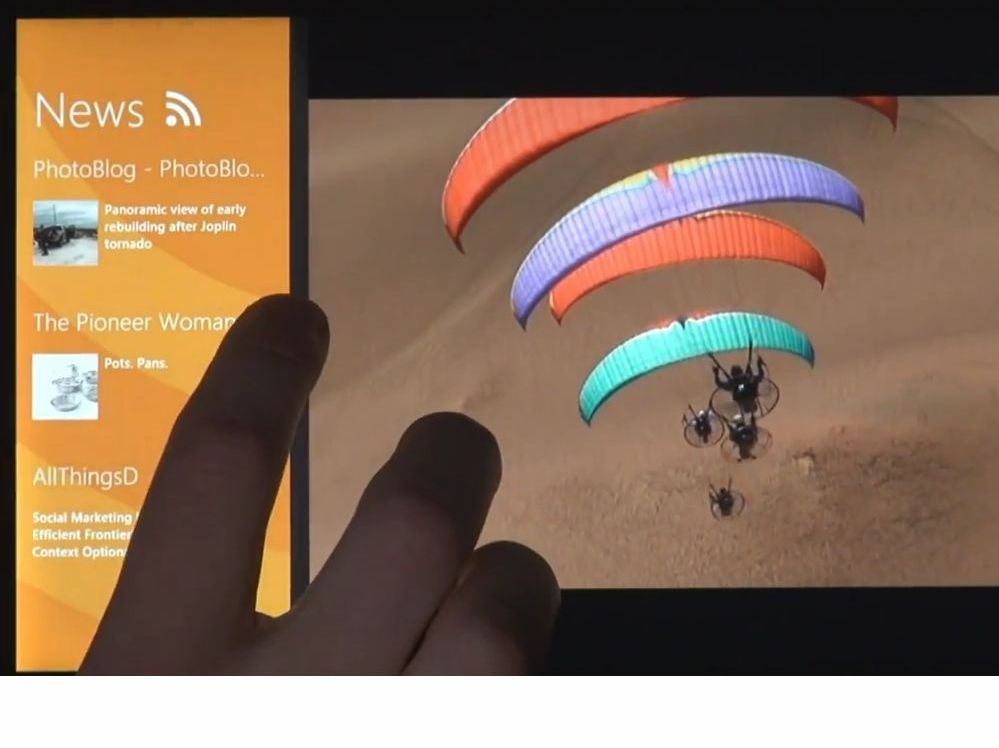Why Microsoft's tablet strategy is flawed
Do we really want tablets to mimic our PCs?

Imagine if the motor car was designed not around the engine, but the horse. Instead of fuel injection we'd have carrots on strings. Our steering wheels would be connected to reins, we'd honk the horn to make the car move faster, and we would live in constant fear of enormous horse farts.
That's more or less what Microsoft wants to do with tablets.
Speaking at Microsoft's Partner Conference in LA, Windows Phone president Andy Lees pooh-poohed the idea of Windows Phone running on tablets. "We view a tablet as a PC," he said, claiming that "Microsoft wants people to be able to do the sort of things they do on a PC on a tablet."
While Microsoft plans a "unified ecosystem" of devices sharing the same OS, the transcript of Lees' speech on WinRumors shows that the "sort of things" Microsoft has in mind for tablets are "things like networking, to be able to connect to networks and utilize networking tools. To get USB drives and plop them into the tablet. To be able to do things like printing, all of the things, using Office, using all of the things you would expect on a PC."
Last month, I wrote: "I worry that Microsoft isn't thinking 'how do we reinvent document creation and editing on tablets?', but 'how can we shove Office into it?'"
I didn't expect Microsoft to prove me right quite so quickly.
No means no
Sign up for breaking news, reviews, opinion, top tech deals, and more.
Windows-powered tablets have been around for longer than many TechRadar readers. Fujitsu started flogging Windows-powered tablets in the early 1990s, Microsoft unveiled its own vision for Windows-powered tablets in 2001 and a tablet-friendly version of Windows XP shipped in 2002. And with the exception of a few niche markets, they didn't sell.
Here's why. Back in 2001, PC World quoted Andrew Dixon, group marketing manager for Microsoft's Tablet PC division. "Tablet PCs are just better notebook computers," Dixon said.
As a result, things went pretty much like this for a decade:
MICROSOFT: "Look! Windows in a tablet!"
EVERYONE: "No thanks."
MICROSOFT: *rummages* "Look! A slightly different Windows in a tablet!"
EVERYONE: "No thank you."
MICROSOFT: "Look! Windows in a slightly different tablet!"
EVERYONE: "Er, no thanks."
It is entirely possible, of course, that with Windows 8 Microsoft will finally find the magic formula, a version of Windows that's as finger-friendly as iOS, Android or WebOS and that doesn't suffer from the complexity and vulnerabilities of a fully-fledged desktop operating system.
It's possible. But it's not very likely.
We're in Maslow's Hammer territory here. Maslow's Hammer, Wikipedia informs me, is the rule we know as "it is tempting, if the only tool you have is in a hammer, to treat everything as if it were a nail".
Microsoft's hammer is Windows, and 2011's "Microsoft wants people to be able to do the sort of things they do on a PC on a tablet" is the same message as 2002's "Tablet PCs are just better notebook computers".
It wasn't the right message then, and I don't think it's the right message now.

Contributor
Writer, broadcaster, musician and kitchen gadget obsessive Carrie Marshall has been writing about tech since 1998, contributing sage advice and odd opinions to all kinds of magazines and websites as well as writing more than twenty books. Her latest, a love letter to music titled Small Town Joy, is on sale now. She is the singer in spectacularly obscure Glaswegian rock band Unquiet Mind.